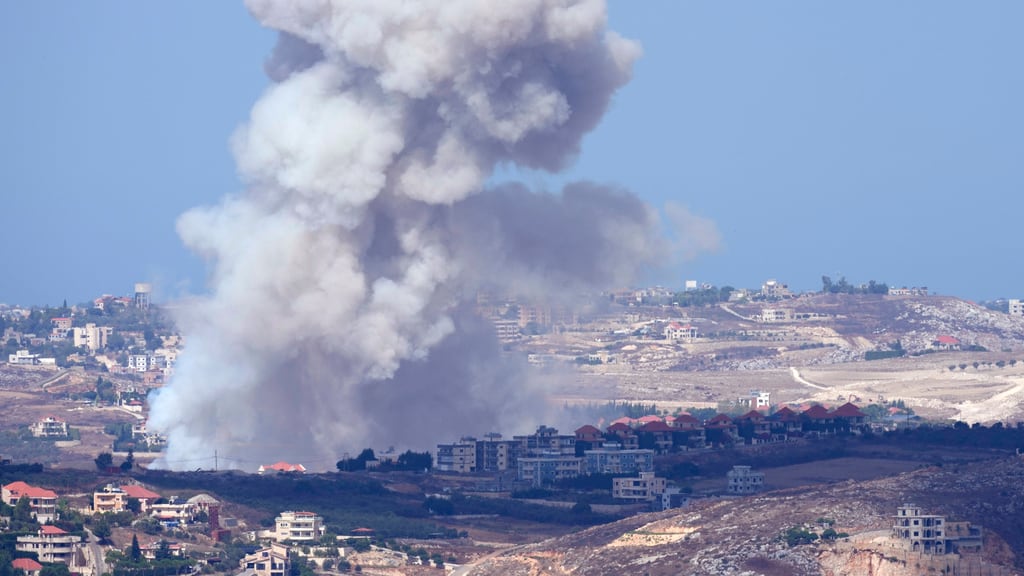MARJAYOUN, Lebanon (AP) — Israeli airstrikes against Lebanon killed at least 490 people on Monday, including more than 90 women and children, Lebanese authorities reported, in the deadliest day for Lebanon since the 2006 war between Israel and Hezbollah.
According to the Lebanese Ministry of Health, the bombings also injured 1,645 people, a painful figure for a country that was targeted in an attack last week which destroyed hundreds of electronic devices.
PUBLICIDAD
The death toll even surpasses that of the explosion in the port of Beirut in 2020, when hundreds of tons of ammonium nitrate exploded and caused the death of at least 218 people.
Why did Israel attack Lebanon?
The Israeli military spokesperson, Rear Admiral Daniel Hagari, stated that the army will do "whatever is necessary" to expel Hezbollah from the Lebanese border with Israel.
Hagari stated that Israel's bombings on Monday had inflicted serious damage on Hezbollah. However, he did not want to provide a timeline for the current operation, and said that Israel was prepared to launch a ground invasion in Lebanon if necessary.
"We are not seeking wars. We want to eliminate threats," Hagari stated. "We will do whatever is necessary to accomplish this mission. We hope to achieve it as soon as possible."
The Rear Admiral said that Hezbollah has launched around 9,000 rockets and drones against Israel since last October, including 250 just on Monday.
The Israeli army said it attacked 1,300 targets on Monday, mainly in southern Lebanon where there is a greater presence of Hezbollah, and that it destroyed cruise missiles, long and short-range rockets, and drones. It said many of them were hidden in residential areas, and showed photos of what it said were weapons hidden in private homes.
Israel estimates that Hezbollah has around 150,000 rockets and missiles, including guided missiles and long-range projectiles capable of reaching any point in Israel.
The Lebanese Minister of Health, Firass Abiad, said that Israeli attacks had targeted hospitals, medical centers, and ambulances.
